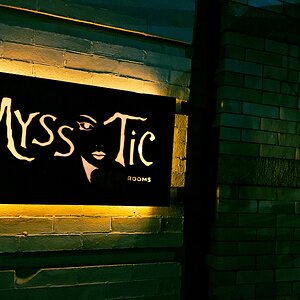Ediacol
TPF Noob!
- Joined
- Jul 31, 2011
- Messages
- 81
- Reaction score
- 4
- Location
- Mesa, Arizona
- Can others edit my Photos
- Photos OK to edit
Would you recommend taking either business management classes or photography classes?
or just going with it and doing it all on your own?
Do photographers have to carry any kind of permits or insurance for the clients? (it's probably not the same but like freelance massage therapist's have to have special insurance)
If you charge for photography, how much did you start at for your first sessions? and how long did you charge that price before raising it?
I wanted to start with my friends and family however, they would probably tell their friends that I did their stuff for free, how do I get around that? Should I just post what I have and market that and start charging right away or what? I want to be taken seriously and I don't want to haggle lol so I think if some knew that I did it for free they might see that as a weak spot.
Thanks a ton for looking & answering If you have anything else to add, please do.
If you have anything else to add, please do.
or just going with it and doing it all on your own?
Do photographers have to carry any kind of permits or insurance for the clients? (it's probably not the same but like freelance massage therapist's have to have special insurance)
If you charge for photography, how much did you start at for your first sessions? and how long did you charge that price before raising it?
I wanted to start with my friends and family however, they would probably tell their friends that I did their stuff for free, how do I get around that? Should I just post what I have and market that and start charging right away or what? I want to be taken seriously and I don't want to haggle lol so I think if some knew that I did it for free they might see that as a weak spot.
Thanks a ton for looking & answering





![[No title]](/data/xfmg/thumbnail/37/37625-7e132688457d56e50320a8c99a79fe38.jpg?1619738154)

![[No title]](/data/xfmg/thumbnail/30/30995-7e48e5498fe9a56ea3d405cf87f3a1ec.jpg?1619734558)




![[No title]](/data/xfmg/thumbnail/32/32944-550374cc056b8618b47594b3cc6e1574.jpg?1619735777)
